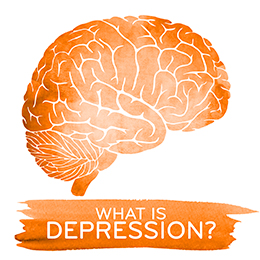What is Schizophrenia?
Schizophrenia
Schizophrenia is a chronic, severe and often disabling brain disorder.
Transcript
Schizophrenia is a chronic, severe and often disabling brain disorder.
Schizophrenia can be divided into three groups of related symptoms; positive symptoms, negative symptoms and disorganized symptoms, which include thinking, speech, and behavior.
Positive symptoms include primarily hallucinations and delusions. The person has a difficult time interpreting what is real.
Although auditory hallucinations are most common, a person with schizophrenia may also see, smell or hear something that is not there.
Delusions are firmly held beliefs that are untrue such as believing they are being spied upon.
Negative symptoms include loss of motivation and difficulty finding pleasure in fun activities. They may exhibit diminished emotional expression and speech. For example, a person's face may not show any emotion, they may not talk much, and may not make eye contact when interacting with others.
The term "disorganized symptoms" describes unusual or disorganized thinking and speech, disorganized or bizarre behavior, as well as inappropriate responses to social situations.
For example, a person with schizophrenia may have trouble organizing their thoughts, which can have an effect on communication. They may develop behaviors that are odd and different from others, or may have facial expressions that are inappropriate for a given conversation.
Any of these symptoms can have a disabling effect on an individual’s day-to-day life. Positive symptoms like hallucinations and delusions can be particularly challenging for sufferers of schizophrenia, and may make them withdrawn or agitated.
When someone is experiencing negative symptoms, they may need assistance with their everyday activities, including personal hygiene and household chores.
Disorganized symptoms can make it very difficult to perform daily tasks, communicate clearly and have relationships.
Schizophrenia may begin in the mid to late teenage years, with subtle changes in emotional, cognitive and social functioning. This is followed by the development of the more common positive, negative, or disorganized symptoms of schizophrenia.
This process can occur over a period of months to years. Presence of these symptoms require medical care.
Two other disorders closely resemble schizophrenia, but are distinguished by the number of months a person has symptoms or by their characteristics —schizophreniform disorder and schizoaffective disorder.
The symptoms of schizophreniform disorder are similar to schizophrenia, but differ in their duration. The episode lasts between one month and six months in those with schizophreniform disorder, after which the individual recovers.
Schizoaffective disorder is a combination of the positive, negative, and disorganized symptoms of schizophrenia, along with the presence of intermittent major depressive episodes, manic mood episodes, or both.
There is currently no cure for schizophrenia. While treatments can help relieve symptoms, those suffering from schizophrenia and their caregivers can reach out to their treatment team to learn about ways to recognize symptoms and potential strategies to manage them.
Browse the videos on this site to hear stories from people living with mental illness and those who care for them.
If you or your loved one has symptoms of schizophrenia discuss an appropriate treatment plan with a healthcare professional.

Comments (0)
Add new comment